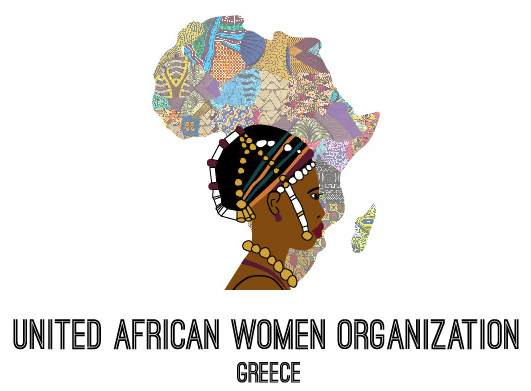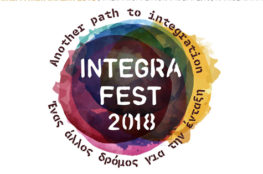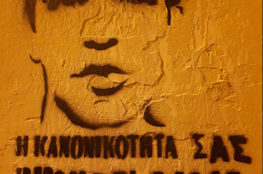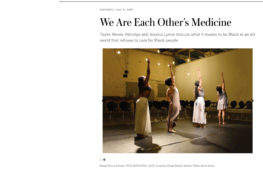On Sunday November 4th 2018, The United African Women Organization happily invites you to a public discussion and creative evening together at AMOQA to mark the closing of its 1st Black Feminist Skillsharing Workshop!
After the discussion we will have music, dance and more!
Stay tuned for more details to come!
BREAKING OUR SILENCES
Public discussion & Closing Party
of the
United African Women Organizaton’s (UAWO)
1st Black Feminist Skillsharing Workshop
Sunday November 4th 2018, 5pm
At AMOQA
(Athens Museums of Queer Arts)
• 3 refugee women, a mother with two daughters, murdered at the Evros border between Greece and Turkey.
• A refugee woman from Ethiopia and her child deported from Switzerland to Athens.
• Zak Kostopoulos lynched, murdered, in broad daylight next to Omonoia Square.
• A homeless man, migrant/refugee, from Iraq stabbed to death at Kallithea train station, where he had taken shelter.
• Reports of weekly rapes in detention centers and refugee camps on the islands, with survivors as young as 5 years old.
These are only some of the brutal events that came into the public domain last month, September 2018.
We, the United African Women Organization, call for a public discussion Sunday November 4th 2018, 5pm at AMOQA to discuss current brutalities we are facing in our communities and to discuss the need and possible ways of collective action, organizing, and intervention.
This month we have been running a workshop, which has made obvious and clear that we all experiences extreme violence in our everyday lives, on many levels. Institutional, governmental and everyday violence: based on our gender, race, sexualities, class, age, appearance, speech, physical condition. These violences take place at work places, home places, assemblies and collectives, between friends and partners, on the streets, in public squares, in public transportation, in the media, public service offices, in courthouses, in schools, in universities, and the list goes on.
A wound to one is a wound to us all. Our struggles are connected and we only grow stronger when we understand this and unite in our work and activism. We often hear words like “anti-sexist” or “anti-racist” used in activist spaces, but what do these words mean to each of us when we leave the assembly? What do they mean in the assembly, or in the protest? How is it so many “anti-racist” spaces in Athens do not have one person of color in them? And if there are people of color in certain assemblies and groups, what roles are they – we – playing? Why are so many “anti-sexist” assemblies unable to detect misogynist attacks on women, gender non-binary and LGBTQI+? What does “solidarity” mean when we are not living and working together? We cannot work together, nor struggle together if we do not begin by discussing the above questions, and others still needed to be asked.
Space, and specifically the politics of space, is another important topic to discuss, and very important for migrant self-organized groups. After over a decade of organizing we, UAWO, lost of our office of many years. For almost 3 years we have been a homeless organization. In our efforts to find an suitable space from the municipality there has been disinterest. What does it mean that in a booming NGO economy it is the migrant-run – and migrant women-run organizations – that are the ones without space?
Currently, AMOQA – where are holding our discussion – is also being forced to leave their space of 3 years because the building was sold to an investment company. They are forced to leave their space by November 15th 2018. To lose space when we are communities already pushed to the margins of society is no simple matter.
We are displaced in our own city, but not for long.
Language is another place of violence. As migrants/refugees we face violence through language when we do not have translations into our languages in public offices. In public offices we are spoken to very quickly, and in complex language not in our mother tongue. We are often forced to sign papers we do not understand without translation, which is illegal. Our information is often written incorrectly on official documents and we are told it is “our fault”, without possibility for correction, which causes many problems, an invisible violence. Migration offices are not running properly and it is us who pay the price for the political lack and failures. And if we speak up we are told “if you don’t like it back to your countries”.
Even the use of the words “migrant” and “refugee” bring a violence in them, the way they are used to isolate and divide us into hierarchies of lives, of “more deserving”, “less deserving” and “non-deserving”.
As the old political slogan says: “Nothing about us, without us is for us”. When policies are made we need to be the ones making it. Our organizations should be involved in improving policies for our communities. In other countries it is migrants making policies regarding their – our – lives. In other countries organizations like ours are required by law to have offices offered from the government where they live.
Finally: How is it possible people here for 30 years are still without citizenship? Many people who say they are “helping migrants” are actually killing us.
Let us gather to un-silence these violences. To “transform silence into language and action,” as Audre Lorde has written, and through our struggles celebrate all that bonds us and brings us together. Let us celebrate the breaking of our silence.
We dedicate this event to the memory of our friend Zak Kostopoulos, for Zak and Zackie, and to all those who are fighting for a just society, one which fits us all. Without justice there can be no peace.
– The United African Women Organization
Program:
5pm: Public Discussion
7.30pm – 12am: Party
The discussion will start with short talks from members of our organization and friends living in Athens and abroad. Friends from Justice for Zak/Zackie, AMOQA and Hand in Hand Against Racism (Belgium) will be speaking with us. We will be sharing experiences from our various contexts, as well as excerpts from texts we have been reading in our black feminist skillsharing workshop, texts from: “Sister Outsider” (by Audre Lorde), visAvis magazine, Press Press, “Life without me” (by Soula Marinoudi) and others.
We invite you all to join us in conversation and break your silence with us. We invite you to join us in listening to each other’s experiences.
The discussion will be held in greek and english. There will be potential for translation also in arabic and turkish. If you have other needs for translation please contact us as africanwomengreece@gmail.com.
After the discussion we will have African music and dancing!
We will also have a potluck, so whoever can please bring something to share, a favorite recipe perhaps, something to contribute.
We will have a solidarity box for our new space.
AMOQA and its WC are accessible to wheelchairs and people with diverse mobilities.



